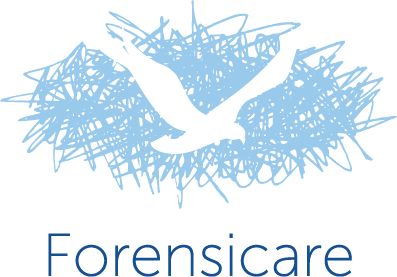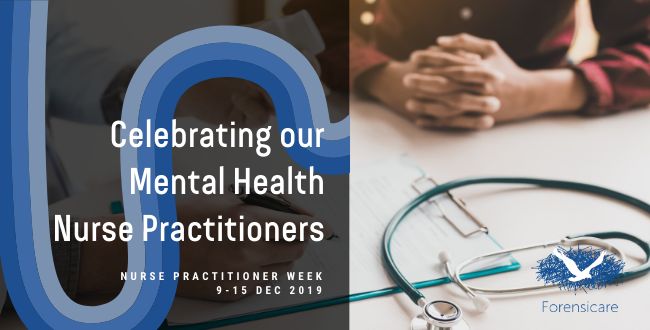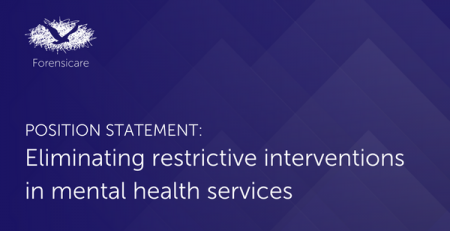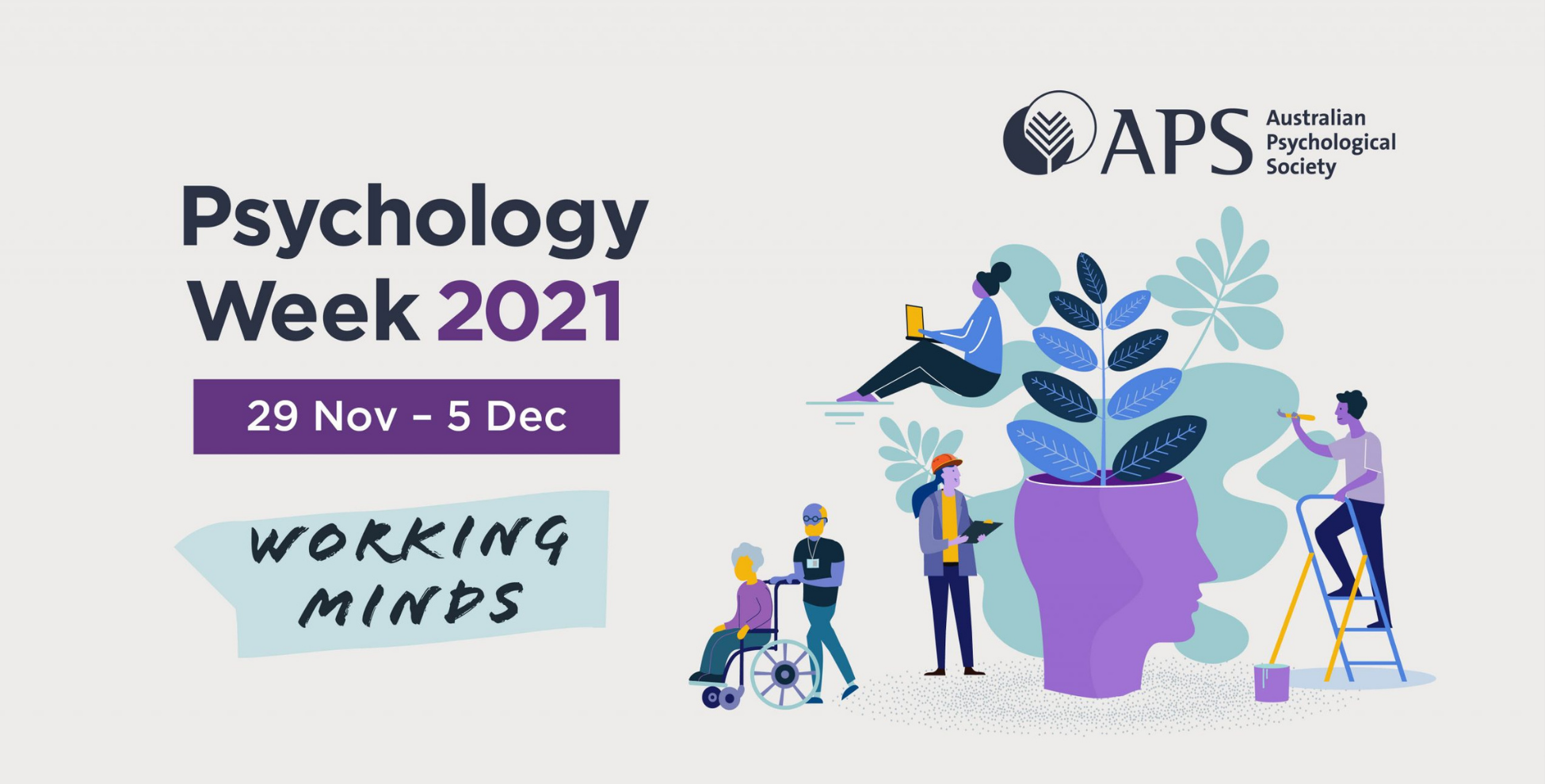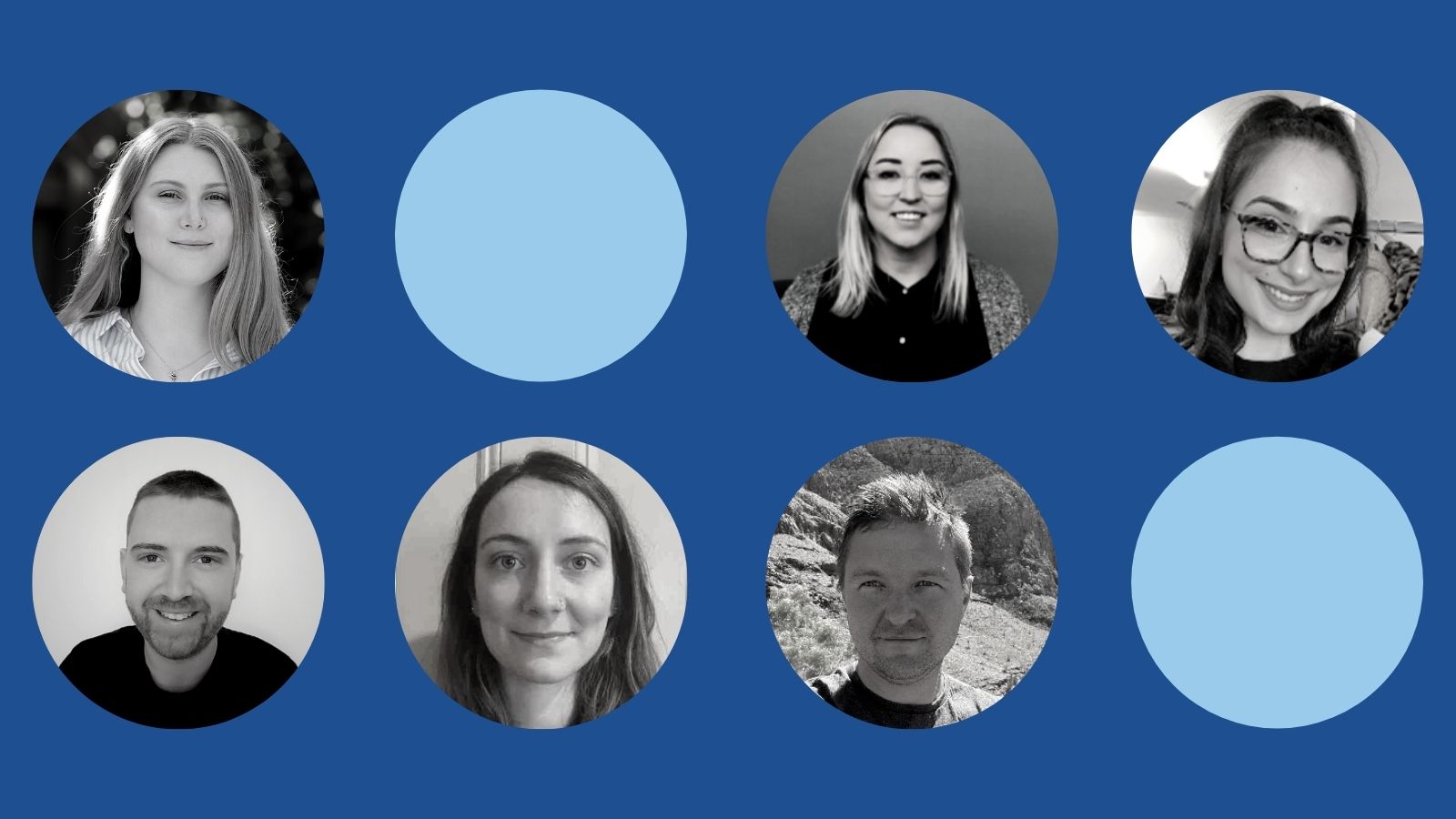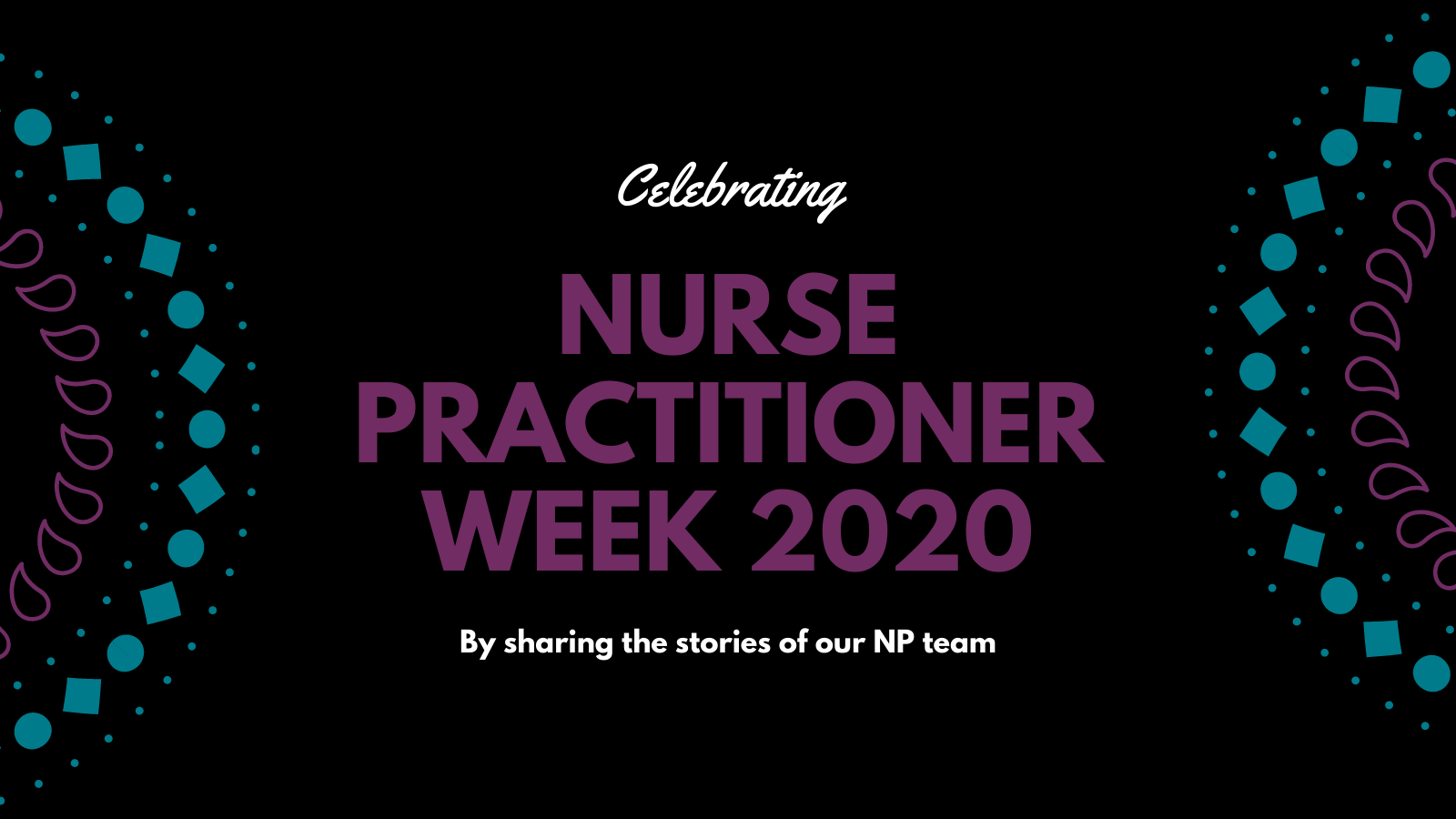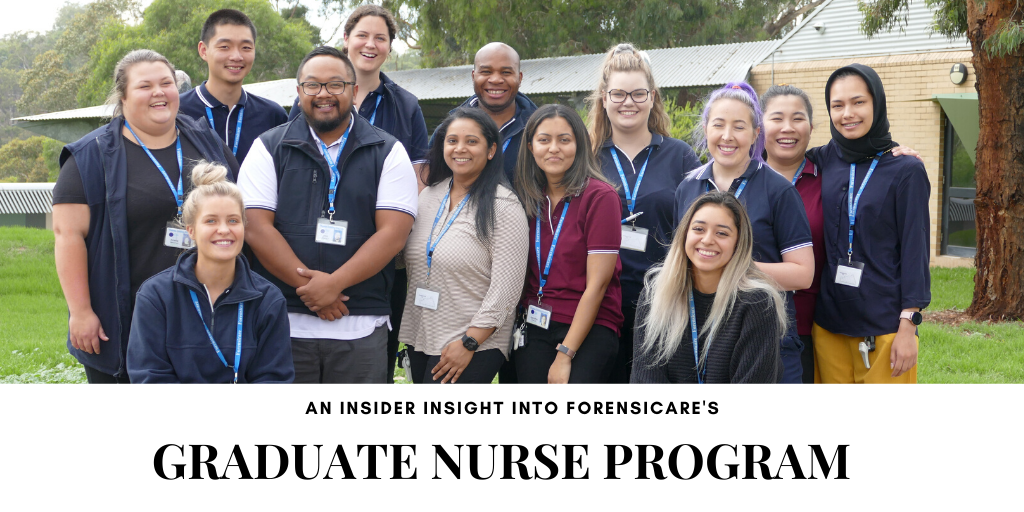Ten years on: celebrating our mental health nurse practitioners
Every day is a new and exciting challenge for Mental Health Nurse Practitioner Courtney Dunn. It’s a complex role in a complex environment, but Courtney wouldn’t have it any other way.
“Our days vary quite a bit,” said Courtney.
“Professionally, it’s a great role to be in because you get to work independently, while still being attached to a team.”
As a nurse practitioner with Forensicare at the Melbourne Assessment Prison, Courtney’s day might include anything from complex case management, advanced assessment and interventions, and diagnosis and treatment.
“We’re practicing mental health nursing holistically, and at an advanced level. We’re using our nursing knowledge and psychotherapeutic skills, and practicing autonomously, providing prisoners with continuity of care.”
“This means patients can more readily access treatment by having a lot of their mental health needs met by one person.”
What is a nurse practitioner?
Simply put, a nurse practitioner is a nurse who is endorsed to carry out extra and more advanced duties—like formal diagnosis, the ordering and interpreting of pathology, the prescribing of medication, and advanced therapeutic interventions.
“Becoming a nurse practitioner allows you to maintain a clinical role, while also developing your leadership skills—not only within your organisation, but more broadly as well,” Courtney said.
“It’s a great way for nurses who want to stay in a clinical role and advance their career.”
Nurse practitioners in Australia
Australia’s first nurse practitioners were endorsed in 2000, with Nurse Practitioner Week (9 to 15 December) commemorating the date.
Forensicare began its Mental Health Nurse Practitioner Program in 2009—and ten years on, we now have seven dedicated nurse practitioners working across the organisation, including Mental Health Nurse Practitioner Murray Bruce, who—along with Berlinda Rexter—were Forensicare’s first two candidates to join the program.
“I am extremely proud of how far we’ve come over the past ten years,” Murray said.
“Forensicare’s Mental Health Nurse Practitioner Program has demonstrated an effective and innovative response to increasing demands on prison-based mental health services.”
“I decided to undertake the program because I enjoy challenges and was looking out for opportunities to expand my career. It’s turned out to be a very rewarding career.”
“We have provided care to tens of thousands of patients over that time, and witnessed firsthand the impact of meaningful interventions provided for patients.”
The nurse practitioner program is transforming the health care sector—particularly in prison-based services, says Mental Health Nurse Practitioner Naushi Manzoor, who works in Forensicare’s forensic mental health service at the Port Phillip Prison.
“In prison, the program has not only improved prisoner access to mental health care and reduced treatment delays, but it has also helped reduce the stigma associated with mental illness in the prison population,” Naushi said.
“Nurse practitioners are well and truly changing clinical practices and transforming health care.”
Working in the Melbourne Assessment Prison
Courtney began her nursing career in Forensicare’s Graduate Nursing Program at Thomas Embling Hospital. And while she’s worked across other service locations, she enjoys the variety prison-based clinical work brings—especially while working at the main assessment prison in Victoria.
“We work with people who are experiencing a variety of mental health issues from adjustment disorders, grief reactions, anxiety and depression, as well as major mental illnesses, like schizophrenia.”
“It’s an interesting environment. I really enjoy it. It can be challenging at times, but it’s also rewarding if you learn to appreciate the small gains.”
“I like listening to people’s stories, seeing what brought them here, and what can be done to help them moving forward.”
While Forensicare’s multidisciplinary team at MAP may only see a patient for a short period of time while their next location is determined, even seemingly small actions can have a profound impact on prisoners living with a mental illness.
“Most of the time, we don’t know the positive effect we have on people. But throughout my career, it’s been clear that even a seemingly routine engagement for us can have a really positive effect on the person we’re working with.”
“While we don’t often see our patients again, when we do receive positive feedback from them, you know you’re doing an important job.”
Forensicare supporting its nurse practitioners
Courtney was endorsed as a nurse practitioner in 2016—and Forensicare’s
expanding program is something she’d recommend for any budding nurse
practitioners.
“The organisation has offered me a lot of opportunities throughout my career,” Courtney said.
“It’s a really great, interesting and diverse role, with a lot of support and flexibility from Forensicare.”
“So, if you’re someone who is clinically focused, and interested in life-long learning that will advance your career, the nurse practitioner role may be perfect for you.”
In celebration of the Mental Health Nurse Practitioner Program’s tenth year, we’d like to thank our dedicated nurse practitioners and candidates, including Courtney Dunn, Catherine Alba, Louise Brady, Murray Bruce, Naushi Manzoor, Linda Pye, Berlinda Rexter, and Brian Tyrrell.
Thank you for your hard work, and helping us help Victorians living with a mental illness.
Will you be the next to join Forensicare’s dedicated team? Find out more on our Work With Us page.
